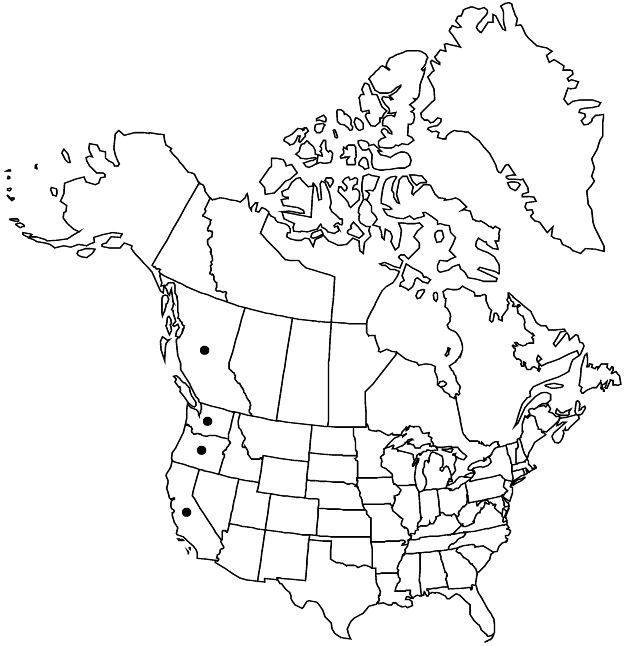Difference between revisions of "Ceanothus velutinus var. laevigatus"
Fl. N. Amer. 1: 686. 1840.
Endemic
Basionym: Ceanothus laevigatus Hooker Fl. Bor.-Amer. 1: 125. 1831
imported>Volume Importer |
imported>Volume Importer |
||
| Line 56: | Line 56: | ||
|publication year=1840 | |publication year=1840 | ||
|special status=Endemic | |special status=Endemic | ||
| − | |source xml=https:// | + | |source xml=https://bitbucket.org/aafc-mbb/fna-data-curation/src/2e0870ddd59836b60bcf96646a41e87ea5a5943a/coarse_grained_fna_xml/V12/V12_423.xml |
|genus=Ceanothus | |genus=Ceanothus | ||
|subgenus=Ceanothus subg. Ceanothus | |subgenus=Ceanothus subg. Ceanothus | ||
Latest revision as of 19:15, 5 November 2020
Shrubs, sometimes arborescent, 2–6 m. Leaf blades: abaxial surface glabrous, veins glabrous or sparsely puberulent. Capsules: valves ± rugose. 2n = 24.
Phenology: Flowering Mar–Jun.
Habitat: Clearings, open sites, mixed evergreen and conifer forests.
Elevation: 0–1400 m.
Distribution

B.C., Calif., Oreg., Wash.
Discussion
Variety laevigatus is distributed primarily in coastal mountains from California north to British Columbia and on the west slope of the Cascade Range. Ceanothus velutinus var. hookeri M. C. Johnston, based on C. laevigatus Hooker, is an illegitimate name. Putative hybrids between C. velutinus var. velutinus and C. thyrsiflorus have been named C. ×mendocinensis McMinn.
Selected References
None.
Lower Taxa
None.